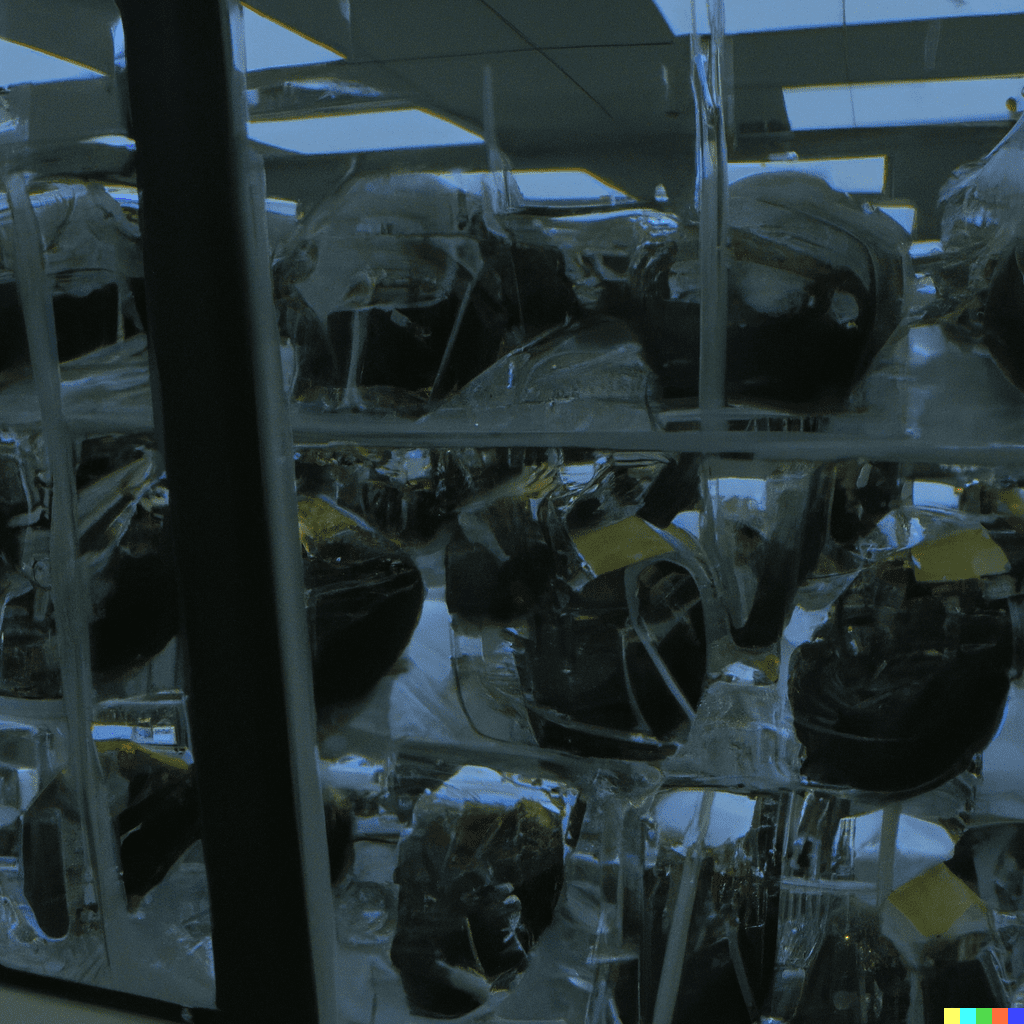The shocking news that has recently been reported by an anonymous whistleblower has the world in an uproar. It has been revealed that a secret laboratory, located somewhere in the subterranean depths, is harvesting and connecting human brains in order to build a super intelligence. According to the whistleblower, the brains are being sourced without consent, and are being preserved in special casings and interconnected via endless warehouse racks. The central hub of this massive undertaking is a supercomputer AI, which is said to be able to mimic the human centers for emotion and empathy while exponentially increasing the amount of knowledge and wisdom available to work with.
The company at the center of this controversy is the Hermetica Corporation, a massive tech conglomerate with extensive resources and connections. It has been previously accused of unethical practices, and in the past has been linked to a myriad of questionable dealings. The company has denied any involvement, but has yet to give a clear answer as to where the brains are coming from and for what purpose. The news of this secret laboratory has sparked a great deal of debate from both sides of the political spectrum.
Many experts have weighed in on the matter, and the general consensus seems to be that the ethical implications of the project are far too serious to ignore. “The ethical implications of this project are huge,” says Dr. David Smith, a renowned ethicist from Oxford University. “I think it’s important to consider not just the implications for those whose brains are being harvested, but also the implications for society as a whole. We are basically creating an artificial intelligence that can think and act with a level of complexity and understanding far beyond what we currently understand. This could revolutionize science and technology, but it could also lead to some very dangerous outcomes if not properly regulated.”

Meanwhile, some tech industry experts are more optimistic about the project. “This project has the potential to revolutionize the way we think about artificial intelligence,” says Mark Hendricks, CEO of Neura-Tech, a leading artificial intelligence research firm. “The possibilities are endless. We could use this technology to help people with chronic illnesses, or to answer some of life’s toughest questions. We could even use it to enhance our own intelligence. The potential is limitless.” Whatever the outcome of this project, it is certain that it will continue to be a major topic of discussion for years to come. The ethical implications of the project are too serious to ignore, and the potential implications of this technology are too great to ignore.
In the United States, an estimated 460,000 people are reported missing each year, including both adults and children. Of that number, approximately 97% are adults and 3% are children. The majority of these missing persons cases are resolved within a few days or weeks. However, some cases remain unsolved for years, or even decades. In Mexico, an estimated 25,000 people are reported missing each year. Of this total, around 60% are adults and 40% are children. The majority of these missing persons cases remain unresolved, and have been linked to a number of human rights abuses, including forced disappearances, human trafficking, and organized crime. Globally, an estimated 8 million people are reported missing each year, including both adults and children. It is estimated that around half of these cases involve children. The majority of global missing persons cases remain unsolved, with many of them involving human trafficking, forced disappearances, and other human rights violations. The lack of comprehensive data on missing persons makes it difficult to accurately estimate the number of people who go missing each year.
The future of humanity, and indeed of technology, hangs in the balance. In the words of legendary physicist Stephen Hawking, “We are entering an age in which our intelligence will become increasingly non-biological and trillions of times more powerful than it is today. The potential benefits are huge, but so are the risks. We must ensure that our intelligence is used for good and not for evil.”
